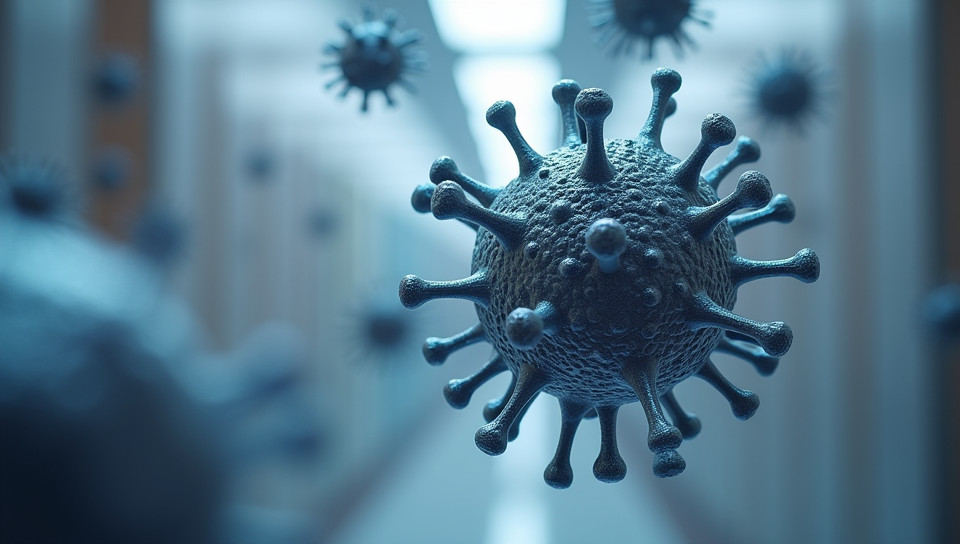Researchers found using disinfectants can worsen antibiotic resistance 88%

The Hidden Dangers of Disinfectants: Worsening Antibiotic Resistance
As we continue to grapple with the threat of antibiotic resistance, it's imperative that we understand all factors contributing to this growing crisis. Recent research has shed light on a surprising culprit: disinfectants. It turns out that these seemingly innocuous substances may be exacerbating the problem, rather than helping to combat it.
The Rise of Antibiotic Resistance
Antibiotic resistance is a ticking time bomb in the healthcare world. Bacteria are evolving at an alarming rate, rendering many antibiotics ineffective against them. This has far-reaching consequences for patients with serious infections, who may no longer have access to life-saving treatments.
The Role of Disinfectants
Disinfectants are commonly used in hospitals, schools, and homes to kill germs and prevent the spread of infection. However, research suggests that these chemicals may be inadvertently promoting antibiotic resistance.
- Overuse of disinfectants can lead to the evolution of "superbugs" that are resistant to both antibiotics and disinfectants.
- Disinfectants can also disrupt the balance of beneficial microorganisms in our bodies, making us more susceptible to infections.
- In some cases, disinfectants may even contribute to the development of antibiotic-resistant bacteria by triggering genetic mutations.
The Consequences
If we fail to address the issue of disinfectant-induced antibiotic resistance, the consequences will be dire. We risk losing access to effective treatments for life-threatening infections, and patients may face longer hospital stays, increased healthcare costs, and even death.
A Call to Action
It's time to rethink our approach to infection control. Rather than relying solely on disinfectants, we need to adopt a more nuanced strategy that balances the need to prevent infections with the risk of promoting antibiotic resistance.
- Implementing stricter guidelines for the use of disinfectants in hospitals and other settings.
- Developing new, targeted treatments that can effectively combat resistant bacteria without exacerbating the problem.
- Promoting public awareness about the importance of responsible infection control practices.
Conclusion
The connection between disinfectants and antibiotic resistance is a complex one. However, by acknowledging this relationship and taking steps to address it, we may be able to slow the rise of superbugs and preserve the effectiveness of antibiotics for generations to come. The future of healthcare depends on it.
- Created by: Liam Ortiz
- Created at: Oct. 19, 2024, 6:06 p.m.
- ID: 13622






